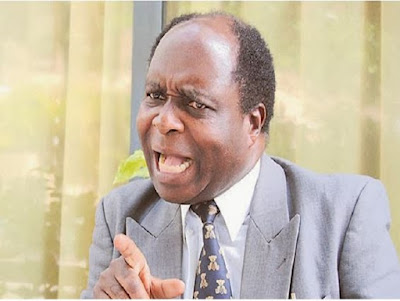2) Nous reproduisons ici cet article de umuvugizi, un blog tutsi rwandais extremiste:
More than 400 former Tanzanian soldiers have threatened to sue the government to demand unpaid dues totalling more than $3 million for their role in the war-torn Democratic Republic of Congo (DRC) between 2000 and 2003.
The Tanzania People’s Defence Forces ex-soldiers claimed that they were recruited to serve as military trainers and combatants with the Congolese army but were instead dispatched to Katanga Province and South Kivu upon their arrival in the country, to fight anti-Rwanda militants Interahamwe and Burundian rebels Forces Pour la Defense de la Democratie (FDD).
Tanzanian soldiers account for more than a third of the 3,069 troops in the United Nations’ Force Intervention Brigade (FIB), which was formed in May last year to fight the then active M23 rebels in DRC.
Reliable sources confirmed that the government had tried to negotiate with the soldiers but the parties failed to reach an agreement on the matter.
The ex-servicemen claim that the government sent two high-ranking military officers and the chairman of the Democratic Party, Rev Christopher Mtikila, to recruit them as a covert force.
This followed a quick withdrawal of a battalion of serving soldiers that had been deployed in Congo at the request of then president Joseph Desire Kabila. Apparently, the soldiers were pulled out after it was realised that overt Tanzanian military intervention in Congo without the sanction of the UN would have raised eyebrows.
Speaking on behalf of the soldiers, Capt (Rtd) Humphrey Felix Kakala said the group had been negotiating with the Ministry of Foreign Affairs and International Co-operation for more than a decade over the outstanding payments but the government had failed to fulfill its promises.
Foreign Affairs Permanent Secretary John Haule referred The EastAfrican to the minister, Bernard Membe, who was however unreachable by press time.
Capt (Rtd) Kakala said the group also wanted the government to facilitate the return of the remains of Warrant Officer Stanley Mwakapala from DRC for reburial at home.
This was after the government helped to ferry to the country the body of Col Ale Kyungu, who they said was among the senior officers who recruited them but died in the war zone in Congo in 2003.
He added that it was agreed in the contracts the soldiers signed with Col Kyungu — whom they understood to have been sent by the then-Chief of Defence Forces General Robert Mboma — that officers would be paid $500 and junior ranks $400 per week while their families would get a $100 monthly subsistence allowances.
Mission was secret
The soldiers have alleged that the payments were never made for the more than two years that they served in the DRC.
“After returning from DRC, we were accused of leaving the country without the government’s knowledge,” Capt (Rtd) Kakala said. “But we told them that the entire process was co-ordinated by the Chief of the Defence Forces and it was not possible that the government wasn’t aware.
“The case was presented to the Ministry of Foreign Affairs and International Co-operation when President Jakaya Kikwete was the minister and his assistants promised that we would be paid.”
The soldiers were told that the mission to recruit them and dispatch them to DRC was secret because the government did not want the international community to know it was sending troops to DRC, according to Capt (Rtd) Kakala.
He further said that their contracts showed that they were recruited as trainers in Lubumbashi; however, one detachment was sent to the town of Pweto in Katanga Province to fight the FDD and another to South Kivu to battle the Interahamwe immediately after they arrived in DRC.
“Generals co-ordinated the recruitment process and they warned us against telling anybody,” Capt (Rtd) Kakala added. “Most of us were unemployed, so we agreed to the deal.
“We met with Col Kyungu at Kidongo Chekundu on September 22, 2000 to discuss the deal and the first battalion left two days later.”
Rev Mtikila confirmed that the soldiers had not been paid and that they had threatened to sue him because of his links to the recruitment. He nonetheless said the military requested him to help facilitate the deployment as he was closely involved in the peace process in the Great Lakes region.
However, Rev Mtikila said he was certain that the Congolese government had paid the soldiers through TPDF and he suspected that the money was stolen by unscrupulous military officers.
“The government promised to pay them because they wanted to avoid embarrassment if it were ever revealed that the generals pocketed the money instead of paying the soldiers. I fully support the ex-soldiers.
“I also plan to sue both the Tanzanian and DRC governments at the International Human Rights Court,” said Rev Mtikila.
In a letter dated September 14, 2001, the clergyman complained to General Robert Mboma that the military officer had violated the agreement between the Tanzanian recruitment team and Selemani Kabila, George Fundi and Colonel Mulubi by not providing $29,167 for the soldiers’ wives
